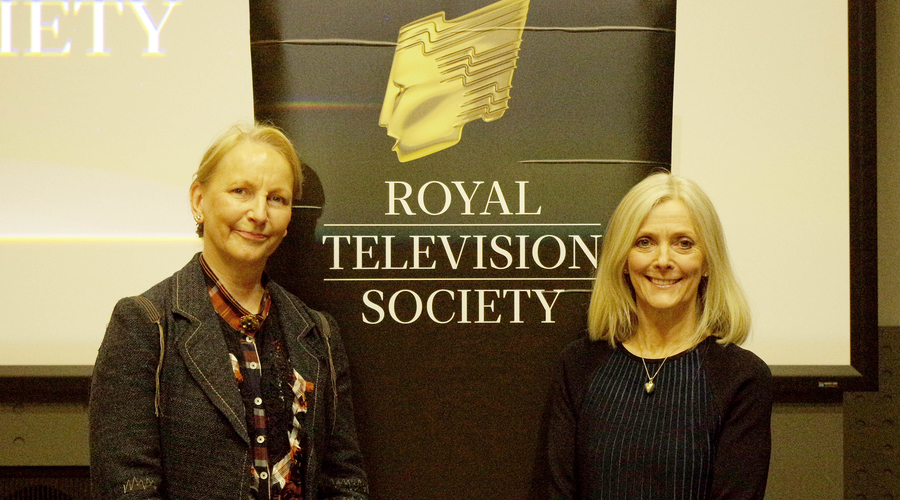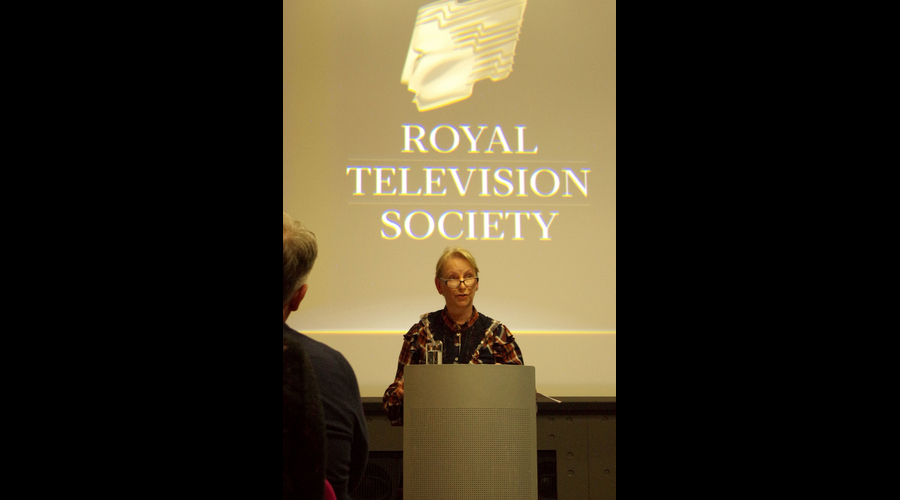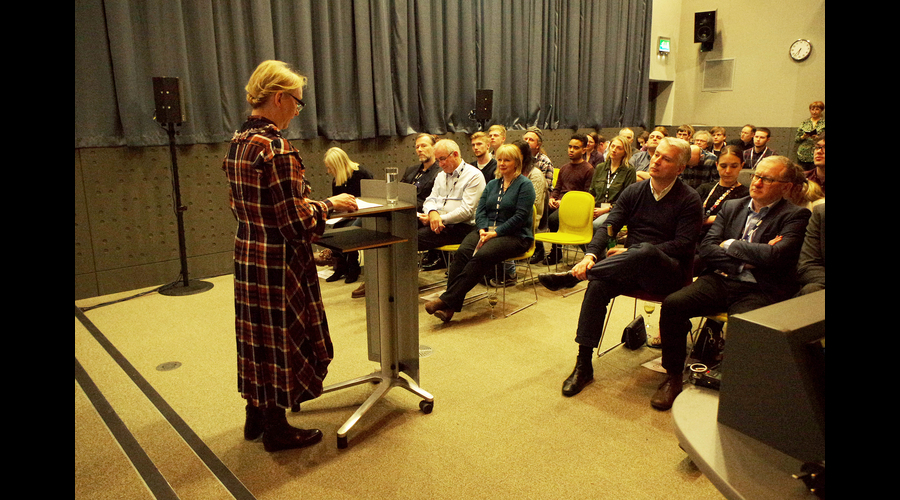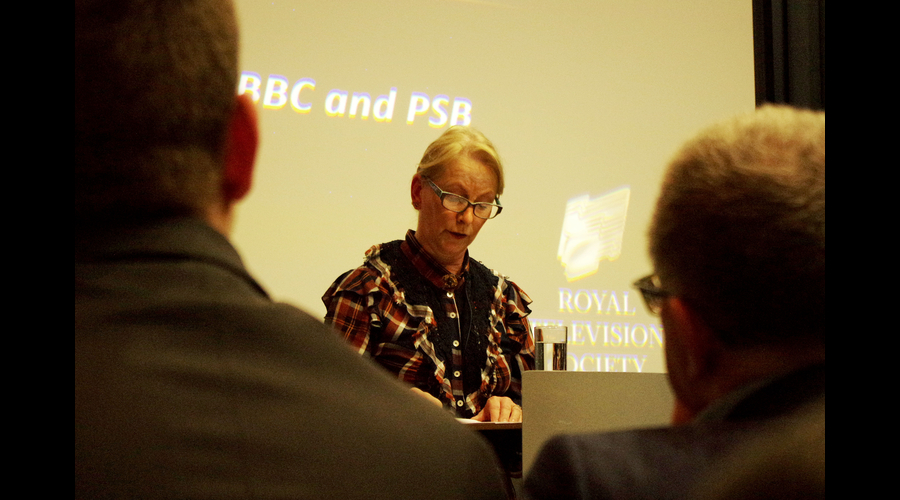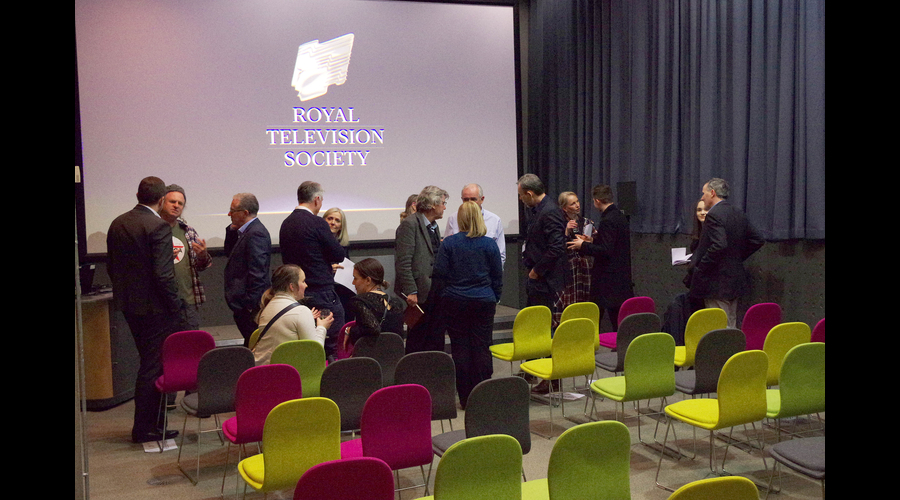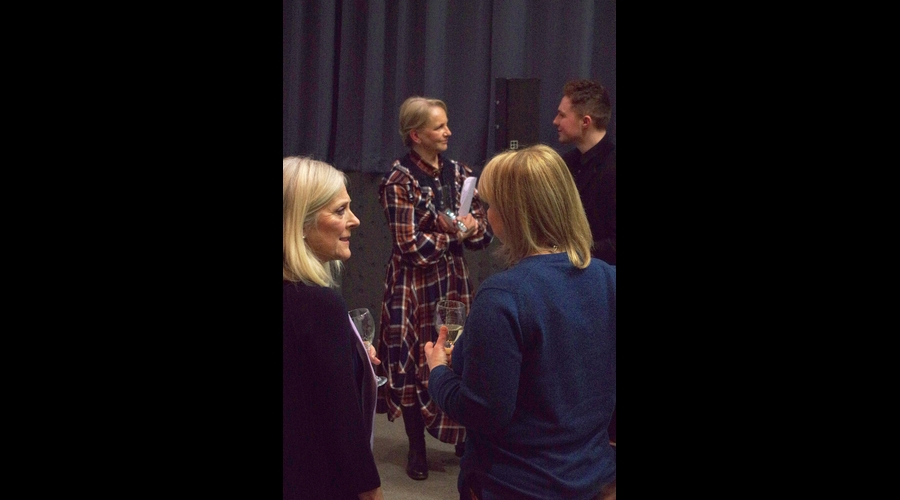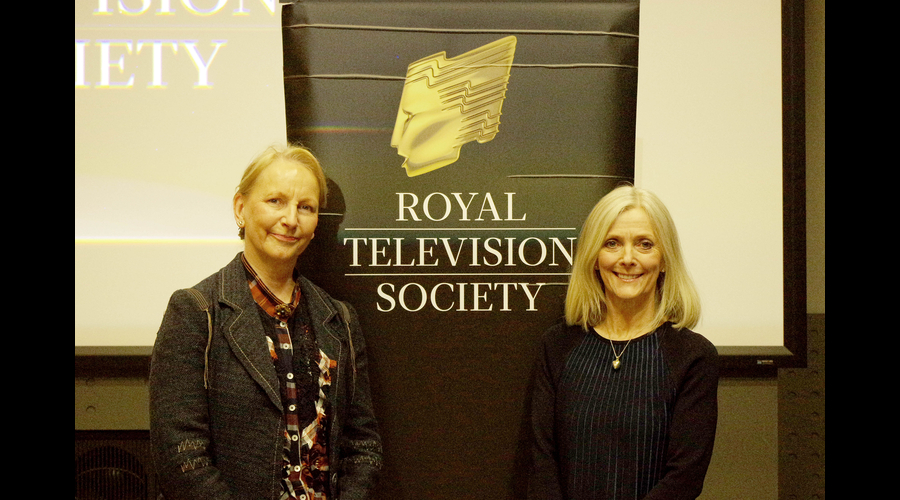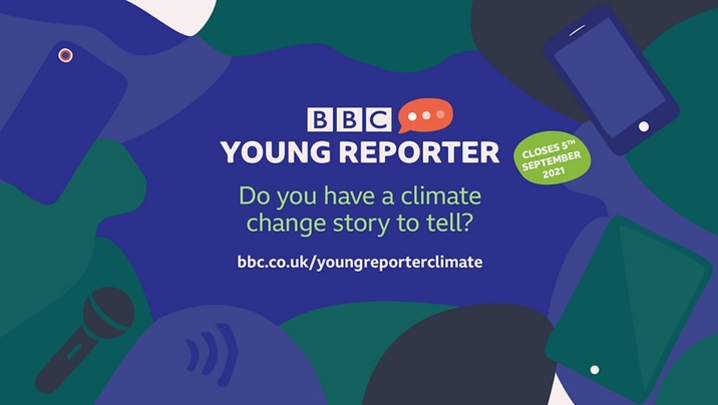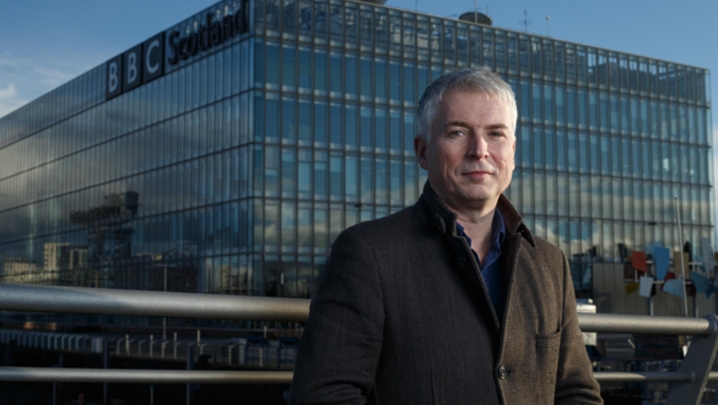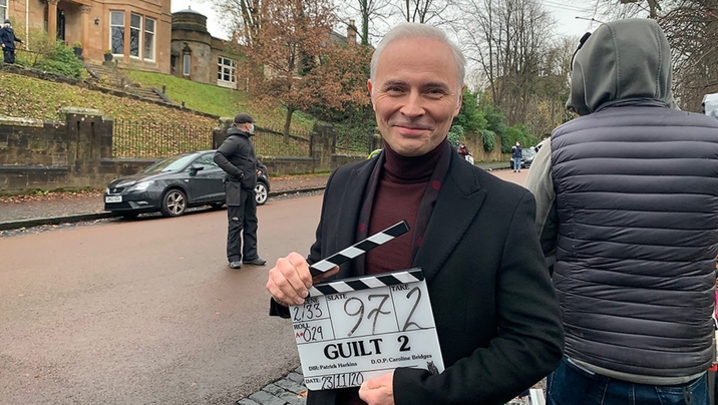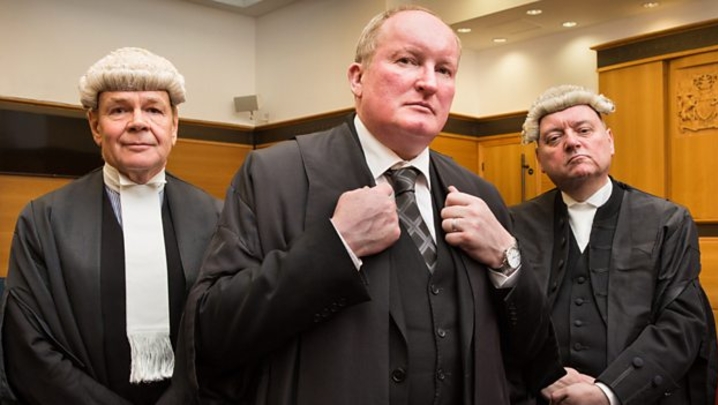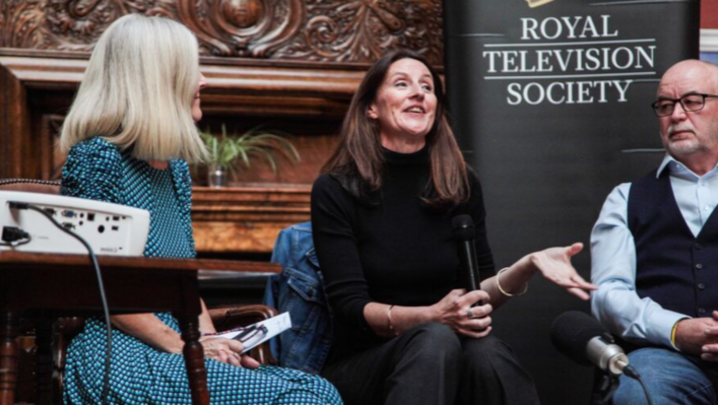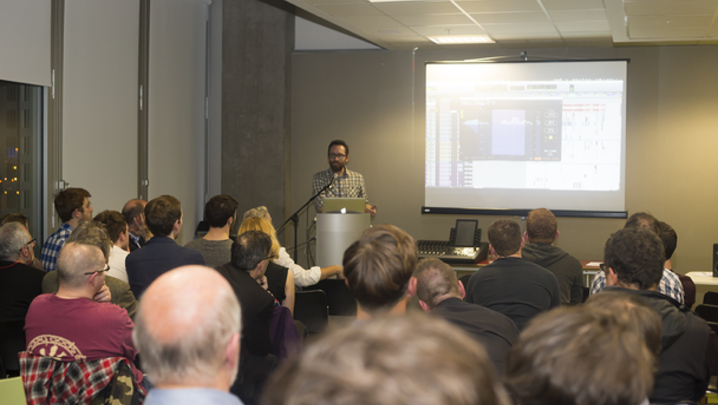Photography Éva Iboyla Sibinszki
Campbell Swinton Lecture 2019
"Changing Times for the BBC and PSB" presented by Director of BBC Scotland, Donalda Mackinnon
Report by Laura Hutton, City of Glasgow College
On Thursday 7th February, the first RTS event of 2019 took place at the BBC Scotland Viewing Theatre, in Glasgow. With the launch of BBC Scotland’s exciting new channel approaching on Sunday 24th February, it was fitting that the first female Director of BBC Scotland, Donalda Mackinnon was the spokesperson for the event.
The room was packed full of media enthusiasts, students, educationalists and industry professionals with a dynamic atmosphere; all very much looking forward to Mackinnon’s speech and the hope of hearing some details about the imminent new BBC channel.
It was RTS Scotland Chair, April Chamberlain’s “great pleasure” to introduce the very influential Donalda Mackinnon. In her impressive introduction, Chamberlain states that the new channel represents “a time of change in the history and architecture of the Scottish broadcasting landscape.”
Mackinnon added: “It will create more jobs, more programmes and more opportunities. In fact, the new channel will have created 200 new posts within BBC Scotland by the end of March this year.”
In February 2017, the Director General announced that there would be “significant additional investment coming to Scotland with funding to support increased network production and to launch a new BBC Scotland channel.” Which is remarkable as they have achieved the creation, production and finalisation of a brand-new channel in just under two years.
Mackinnon then went on to say: [The new channel will produce] “over 900 hours of original content each year on a channel which will be confident and outward-looking, and which will reflect modern Scotland.”
When explaining the high levels of quality that the audience expects with regards to content, she said: “We’re working hard to ensure that our programmes will represent the whole of the nation, plus providing an opportunity to showcase and nurture new talent and attract younger audiences to public service content.”
She then discussed her recent works in addition to the production of the new channel, “Over the past year, I’ve been privileged to lead a work-stream across the whole of the UK looking at career progression for women within the BBC. Alongside colleagues looking at the challenges our industry poses to disabled, LGBT, BME and social mobility within the work force.”
This suggested that the BBC is actively doing more to ensure that minority groups are treated equally and fairly within the work place – a thought which was proven later in the presentation when Mackinnon stressed the importance of this by saying: “Change and diversity must be embraced. Such a diversity will shape the BBC in Scotland for the next generation.”
She furthered her passion of this discussion by adding: “Too many creative, talented people feel locked out of the industry due to limitations. We also want the youth of Scotland to feel welcome and be engaged in the BBC’s content too.”
With regards to Still Game: The Last Laugh, being the programme launching the new BBC Scotland Channel, Mackinnon said: “We were very lucky to have this programme for our launch; it’s something that many people in Scotland from a wide variety of age-demographics can enjoy which is what we want to consistently achieve for the new channel – ambition, enjoyment, and content that the whole family will enjoy.”
A short clip of the pilot for the new channel was previewed later on in the presentation. This included an insight into which programmes will be shown on the new channel such as the News programme “The Nine”; which airs at 9pm on Monday 25th February. In addition to this, the audience can expect showings of Scottish Ballet, concerts, talent from “The Social” and the new series of Still Game, as previously stated, will also be shown on the new channel as well as other entertaining programmes.
With reference to the preview of “The Nine”, Mackinnon said: “Robust news-coverage of Scottish public broadcasting is now more vital than ever. We aim to report news freely, fairly and impartially whilst ensuring that we tell stories in a more effective way whether it be in drama or in news.
In achieving this, the new content should truly fly, and the audience will continue to believe that Public Broadcasting remains relevant in their lives.”
Mackinnon said: “It was a case of trial and error, however, funding was perhaps the main challenge; but we overcame this by being creative with what we had, and have ultimately, been successful in doing so”, when discussing which areas of the start-up of the channel were most challenging and how said challenges were overcome.
The importance of the channel for the new generation was discussed, to which Mackinnon proudly responded: “We aim to ensure that the new channel provides every possible opportunity for young people and encourage them to pursue their aspirations.”
When the speech concluded, questions were welcomed. Paul Tucker, University of the West of Scotland, took advantage of this in asking Mackinnon about the future of scheduling for the new channel to which she responded: “The new channel is not going to be another BBC Three. We’ll have an expression online and on iPlayer.
Different demographics are consuming differently, so scheduling in the future would mean looking at scheduling in quite a traditional way but with one eye to the future.”
A student member of the audience commented: “I think it’s such a positive thing to know that they [BBC Scotland] care to not only want to see a more diverse view of modern Scotland but are ensuring others see it too with the new channel.”
It is almost certain that the BBC Scotland audience will take pride in improvements made by BBC Scotland and will tune in to watch the launch of the new channel on Sunday 24th February for the first episode of the final series of Still Game.
Thanks to City of Glasgow Television Students for creating the fim of the event

